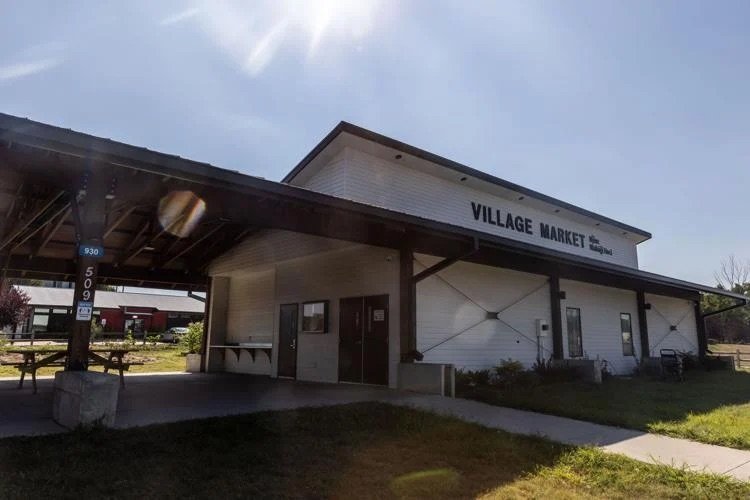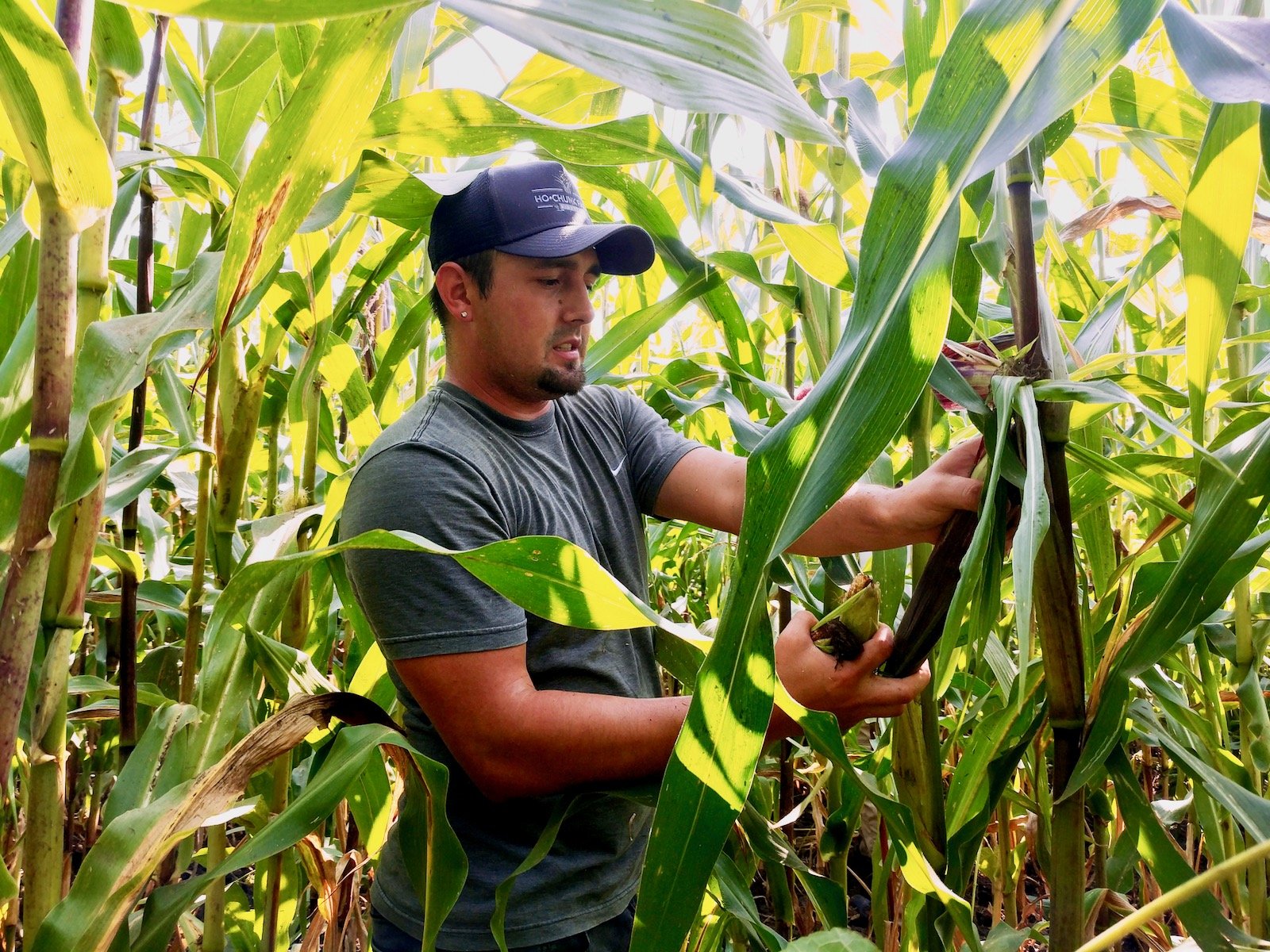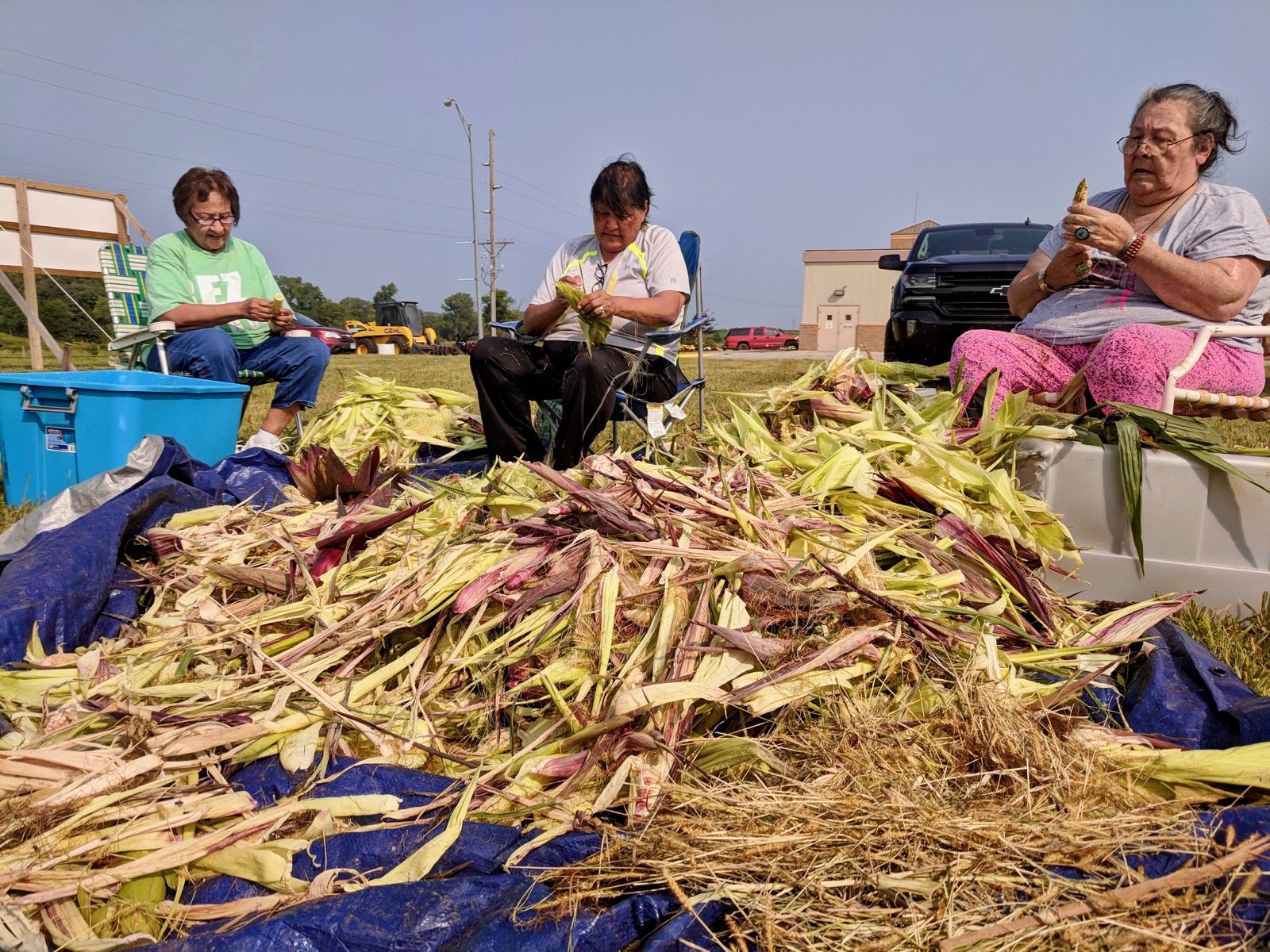Mar 31, 2023
Winnebago Tribe Turns to Organic Farming, Looks to Build Future of Food Sovereignty

Credit: Omaha World-Herald.
Editor’s Note: Small actions towards community self-sufficiency and food sovereignty can have resounding effect on the longterm health and sustainability of the land, the people, and the local food system.
CONTENT SOURCED FROM OMAHA WORLD-HERALD
Written by: Jessica Wade
March 31, 2023
Aaron LaPointe stood before a large map on his office wall in Ho-Chunk Inc. headquarters just as harvest season got underway. The map details all 178 square miles of the Winnebago Reservation in northeast Nebraska. It also depicts a success story for the tribe.
“We have 6,400 acres this year that we farm,” LaPointe said, pointing out color-coded land plots on the map. “We’re pretty much spread out all across the reservation.”

Credit: Indianz News.
That wasn’t always the case. For years, harmful federal policies uprooted the Winnebago people, and tribal lands often were sold or leased to White farmers at rates that were below the true value of the land.
In 2012, the Winnebago Tribe aimed to change course by developing a land-leasing policy that furthered opportunities for Native American farmers to lease tribal land. The policy shift has brought an estimated $10 million to $12 million to the tribe.
A decade later, the Winnebago Tribe is now looking to build a future that goes beyond the financial success. Through multiple programs, the tribe is moving toward food sovereignty while teaching sustainable farming practices to future generations of Native farmers.
“A lot of tribal nations preach that they’re a sovereign nation,” LaPointe said. “But if you can’t feed yourself, and you can’t produce your own food, how sovereign are you?”
LaPointe is the senior agribusiness manager with Ho-Chunk Farms, a subsidiary of Ho-Chunk Inc. The Winnebago Tribe founded Ho-Chunk Inc. in 1994 as an economic development tool.
Its creation came after changes to federal gambling laws prompted the tribe to open its first casino on tribal land near Sloan, Iowa. The venture was an economic success and soon became the main employer of a reservation historically plagued by poverty.
Two years later, Iowa expanded gambling in the tribe’s primary markets, and tribal leaders realized that casinos weren’t a long-term solution toward economic prosperity.
“The tribe took half their money and created Ho-Chunk Inc.,” said Lance Morgan, president and CEO of Ho-Chunk Inc. “We took a bet on our future, and Ho-Chunk Inc. represents that.”
The bet paid off. From an original tribal investment of $9 million, Ho-Chunk has generated a nearly $75 million return on investment and contributed $53 million to the Winnebago community between 2000 and 2014.
Between 2000 and 2016, the share of the Winnebago Reservation living in poverty decreased by 6%. The number of adults 25 or older with a bachelor’s degree or higher has increased nearly 70% since 2011, according to Ho-Chunk Inc.
And, through Ho-Chunk Farms, the Winnebago Tribe now is one of the largest producers of organic crops in the region.
Progress was gradual, LaPointe said. After the land-back policy was adopted in 2012, the tribe gradually began bidding for and winning small leases on farmland.
“It was kind of, ‘Hey, we started this to leverage these farmers, well, now we’ve picked up land and we have to learn how to farm, so how are we going to do this?’” LaPointe said.
After interning at Ho-Chunk Inc. in 2015, LaPointe graduated from the University of Nebraska-Lincoln with an agricultural degree and was hired on full time in 2016.
“That was when I started to identify different issues that we were dealing with on the land side but also the future of the farms — what was that going to look like? How were we going to get to profitability?”
Ho-Chunk Farms began to prioritize quality land leases over quantity. They moved away from leasing lands that were high-rent and difficult to farm, and they began diversifying crops.
In 2017, a transition to organic farming began, along with further efforts to positively impact the community through education and food sustainability. Organic farming is done with no synthetic fertilizers or pesticides.
“We see the ecological benefits and values of producing organically,” LaPointe said. “It only seemed right that the Native company would be farming organically, as we used to.”

Credit: Indianz News.
In 2019, Ho-Chunk Inc. opened the Village Market, an indoor farmers market on the reservation that helped to bring healthy, locally grown foods to a community that had long been a food desert.
Ho-Chunk Farms also has expanded its traditional Indian corn program for students. The program began in 2017 with the goal of revitalizing a diminishing cultural practice in the community.
And a recently established diversified agriculture program at Little Priest College in Winnebago aims to educate a future generation of Winnebago farmers and agriculture scientists.
Now, LaPointe is looking to the next 10 years.
“A long-term goal is continuing to take control over our own land and manage it in a way that we know is sustainable long-term and then develop those localized food systems that will allow us to be sustainable long-term,” LaPointe said.
